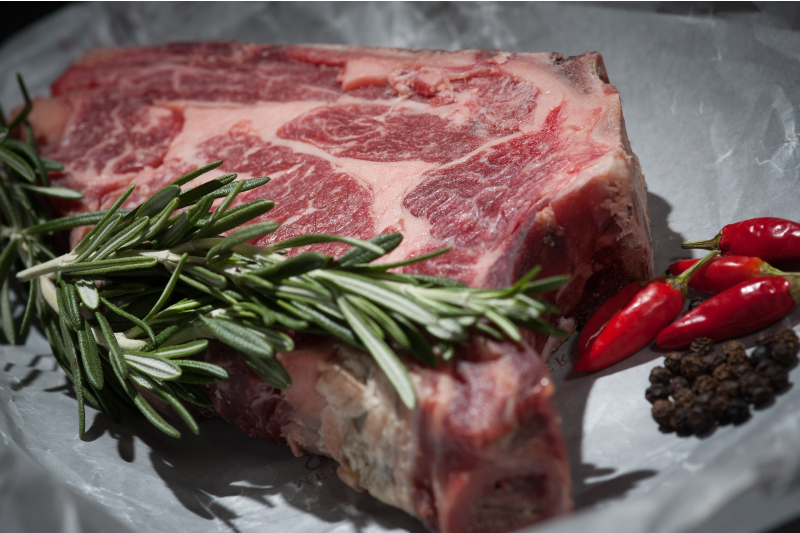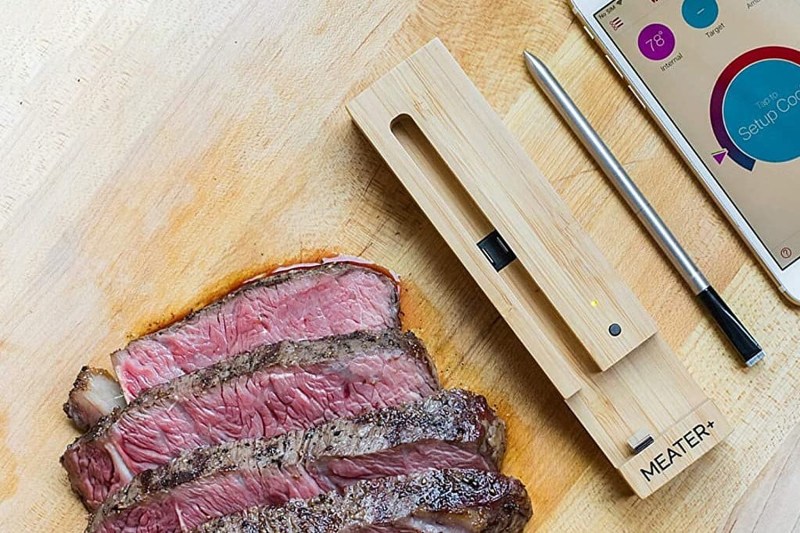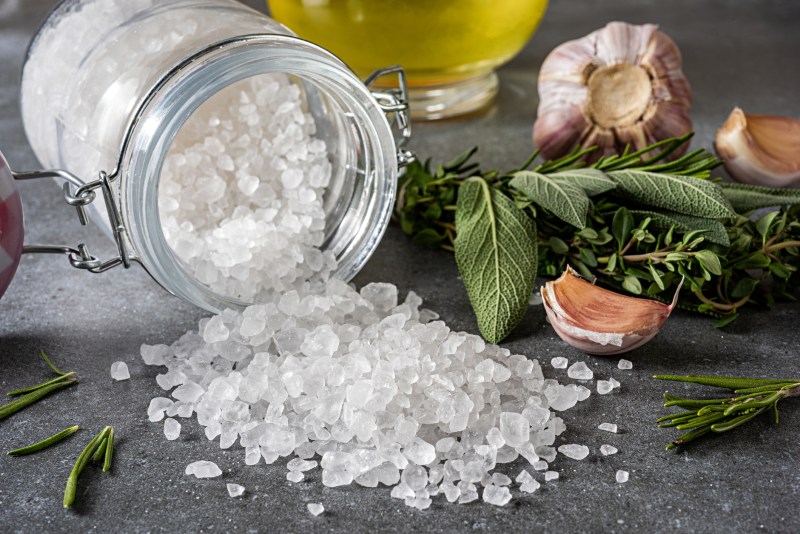Given social media’s increasing popularity, it doesn’t take long before you find yourself scrolling through or being sent videos of different challenges and trends. Some are great, while others are best left alone. The fitness world is no different, like the T-shirt challenge that went around a while back in which you performed a wall-facing handstand while attempting to put on a shirt. Trends in wellness tend to stick around a little longer than those fast-fading challenges. One such trend to have been gaining traction in the past five years or so happens to take place every January and is known as World Carnivore Month.
World Carnivore Month is a global group challenge in which participants consume a carnivore-based diet for all of January. Proponents say it’s a great New Year’s resolution to get a jumpstart on your overall health heading into the new year. It’s grown substantially over the past three years, thanks in large part to popular podcaster Joe Rogan of “The Joe Rogan Experience,” who has either done a strict carnivore diet for the month or, as he chose to do this year, a more adjacent version with some supplemental carbs.
A lot of people end up searching for information about this diet each year as it starts to trend come January 1, leading to even more questions: What is World Carnivore Month? How do you do the carnivore diet? What are the pros and cons of the diet? Should I join the World Carnivore Month challenge?
We’ll answer all of those, but first, let’s start with the basics.

What is World Carnivore Month?
World Carnivore Month is a global challenge to consume a meat-based diet for the entire month of January.
Who can participate in World Carnivore Month?
Anyone who wants to try to get their health back on track can participate for the full 31 days and potentially beyond. The goal is to build consistent habits that can translate to long-term lifestyle changes. Sticking with a diet for a full month is a small step towards that change, but one that can lead to a lifetime of better overall health.
Famous celebrities who participate
- Joe Rogan: Podcaster, UFC color commentator, stand-up comic
- Dr. Jordan Peterson: New York Times bestselling author and psychologist
- Consumes a carnivore diet year-round
- Dr. Shawn Baker: Orthopedic surgeon, world-record-holding multisport athlete, author
- Brought this diet to Joe Rogan’s attention
- Has been a full-time carnivore going on seven years
- Dr. Paul Saladino: Double board-certified MD, podcaster, author
- Has popularized an adjacent version called the animal-based diet

What does typical eating look like on the carnivore diet?
While there are no definite strict rules when it comes to carnivore diet food lists, there are variations to how strict you need to be with the diet. This will ultimately come down to a matter of preference or what your overall goals are, as well as what you want to see in your carnivore diet meal plan.
Lions (elimination) diet
- The strictest of all the versions available
- Three main ingredients: Water, meat (mostly beef) from ruminant animals, salt
- Prioritizes fatty cuts of meat like rib eyes
Standard carnivore diet
- The most popular form of the diet
- Main ingredients: Ruminant animal meat, eggs, poultry, organ meats, and minimal amounts of dairy, if tolerated
Nose-to-tail carnivore diet
- Very similar to the standard carnivore diet
- Heavier emphasis is placed on organ meats or offal: liver, lungs, brains, testicles, heart
Animal-based carnivore diet
- Could almost be considered a keto-based version
- Allows participants to consume carbs naturally found in nature
- Main ingredients: Ruminant animal meat, eggs, poultry, organ meats, fruit, honey, and minimal amounts of dairy, if tolerated

Some things to consider when doing a carnivore diet
Here are a few tips to bear in mind if you decide to try out the diet for yourself. By following these guidelines, you can get the most out of the diet for the month or beyond.
- Eat fatty meats. Focus on ruminant animal meats. Fatty cuts of meat such as rib eyes have higher fat content, which can be crucial to help your body learn how to become fully satiated more consistently. They are also loaded with essential nutrients.
- Salt your meat. One of the main things to be cognizant of during a switch to a carnivore diet is to make sure that you salt each of your meals. Carbohydrates play a direct role in water retention levels. As you cut them out, a good amount of water weight is shed, as well as electrolytes. This is why some people experience flu-like symptoms known as “keto flu” in keto diets. Salting with something like pink Himalayan salt can help to balance your electrolyte and water levels.
- Listen to your body. One of the main things people get wrong and struggle with on a carnivore diet is not eating enough. For years, people have focused on calories in vs. calories out as the only thing to pay attention to when trying to lose weight. However, not all calories are created equal. This is why on a carnivore diet, you need to eat enough and listen to your body. If you’re hungry, eat more.

What are the goals of World Carnivore Month?
While everyone’s goals will vary, the overall aim is to get back to a more ancestral way of eating. The diet in and of itself, if only followed for the month of January, is a semi-elimination-based diet.
The primary goal of these diets is to remove almost all inflammatory food triggers to help people better maintain their health and see what foods might actually be negatively affecting their wellness. This can ultimately help people learn what to eat and the foods that will help them thrive for the rest of their lives.

Results of a carnivore diet
For years, the majority carnivore diet benefits have mostly been anecdotal evidence through personal results. With more and more studies publishing results, there is now a better understanding of some of the diet’s benefits. Here are some of the top reasons to try it out, and some potential drawbacks.
Pros of a carnivore diet
- Body fat recomposition. This diet can help users retain lean muscle tissue with an improvement in overall fat loss.
- Sustainable for those with severe food allergies or autoimmune diseases.
- Increased cognitive function and mental clarity.
- Less bloating and feelings of being bogged down on a daily basis.
- Less inflammation, especially in joints.
Cons of a carnivore diet
- Restrictive and may be hard to follow for some.
- Can be socially isolating. This diet may be difficult to follow when eating with family, friends, and coworkers, especially in public settings.
- Cost. With the increasing cost of meat, eggs, and other foods in the diet, it’s not the most affordable option.
- May negatively affect long-term sleep. Some studies show that carnivore diets may have a negative effect on sleep, which is why some prefer to go with the animal-based version instead.
Should you do the carnivore diet?
At the end of the day, this is going to be totally dependent upon you as an individual and your wellness goals. Participating in World Carnivore Month is a great way to dip your toes into an elimination-based diet and see how it affects your health. The best advice is to start with the animal-based carnivore diet first, as carbs have been shown to be very beneficial for the overall quality of health and wellness. Occasionally adding in grains, legumes, and vegetables won’t do you any harm, either. Sometimes the best option is to maintain a well-balanced approach.



